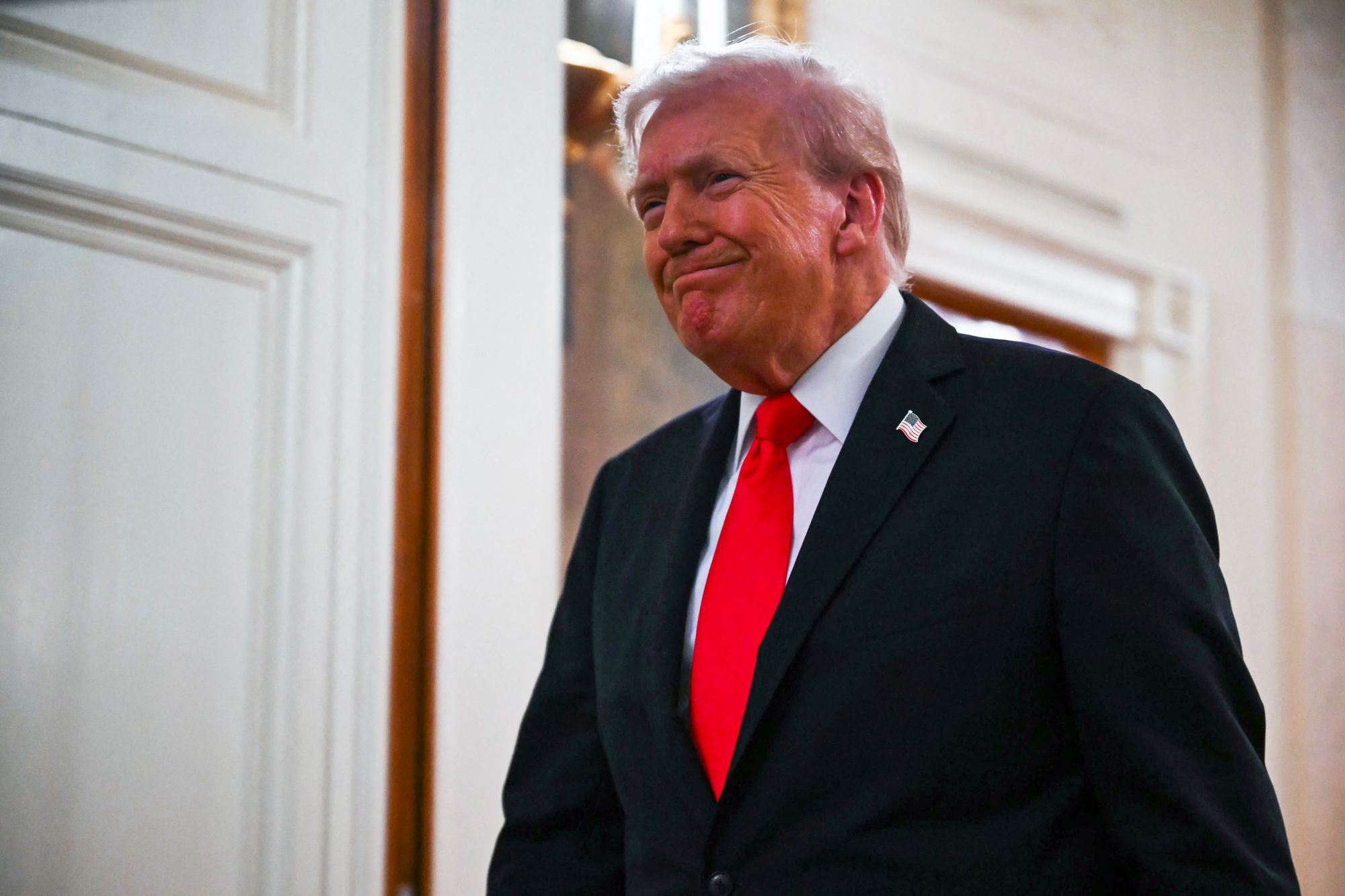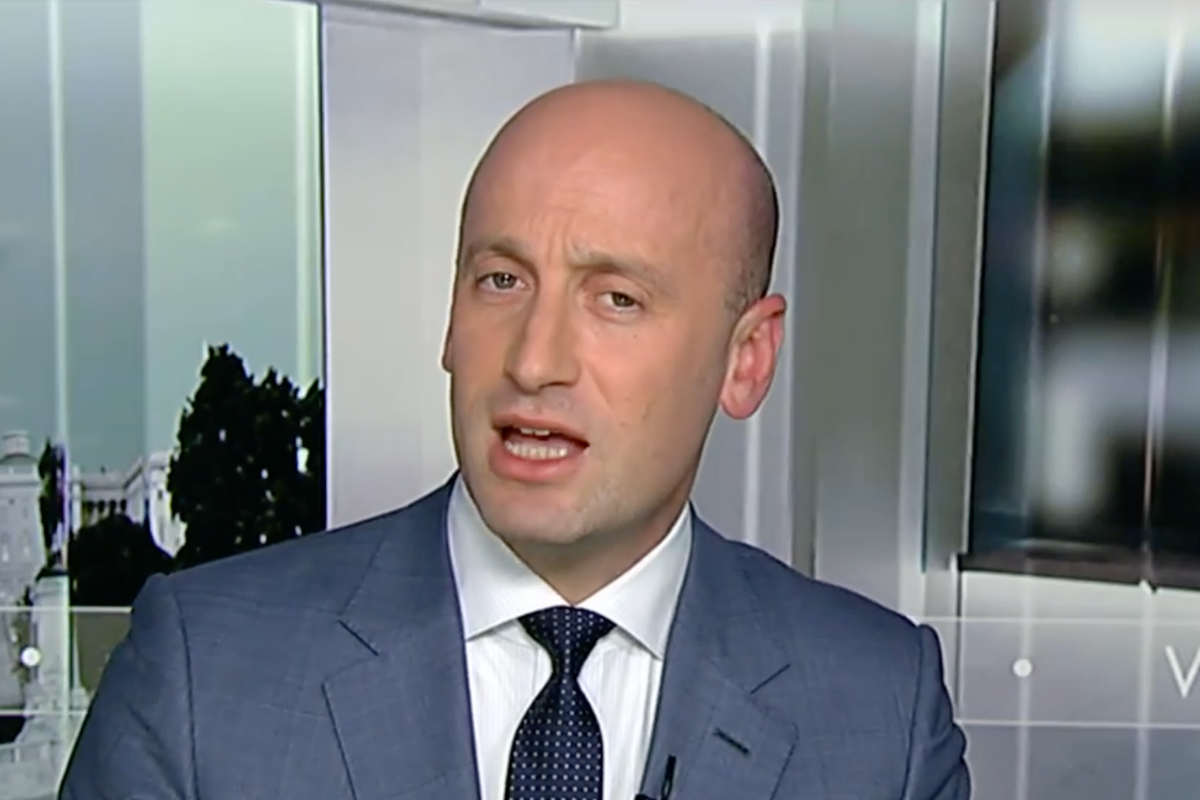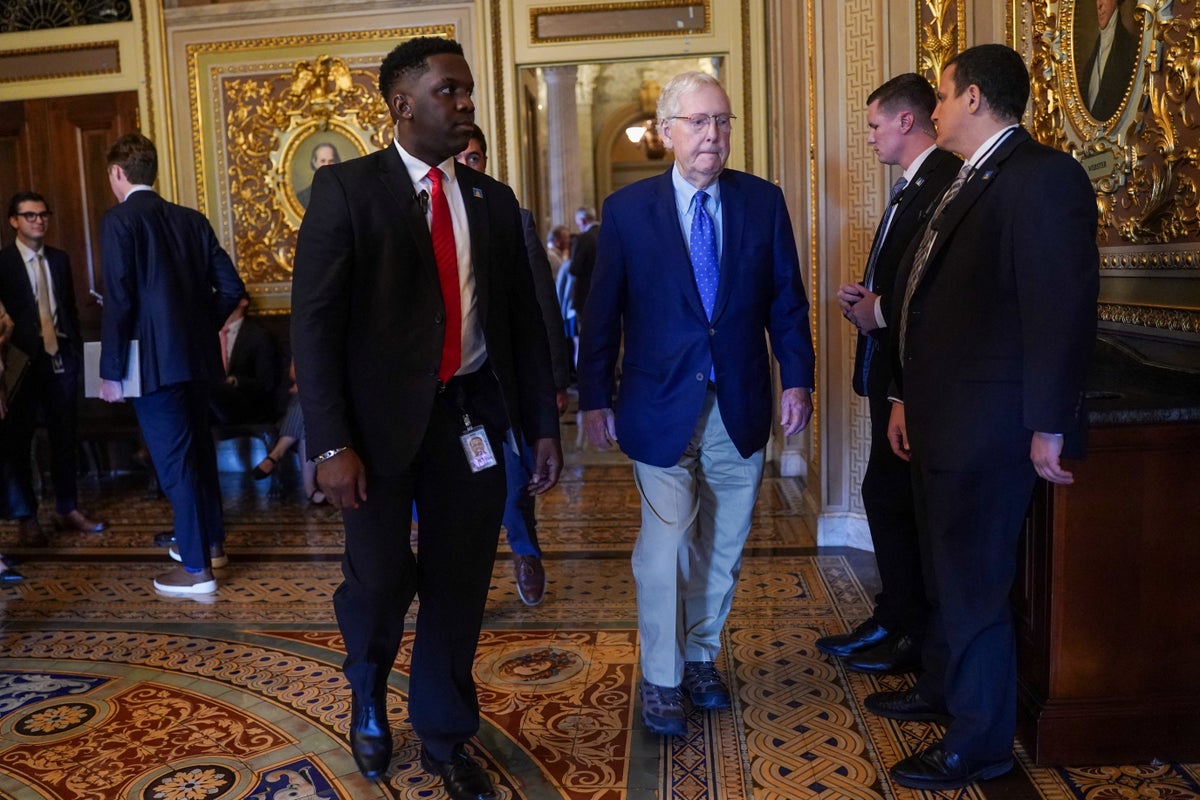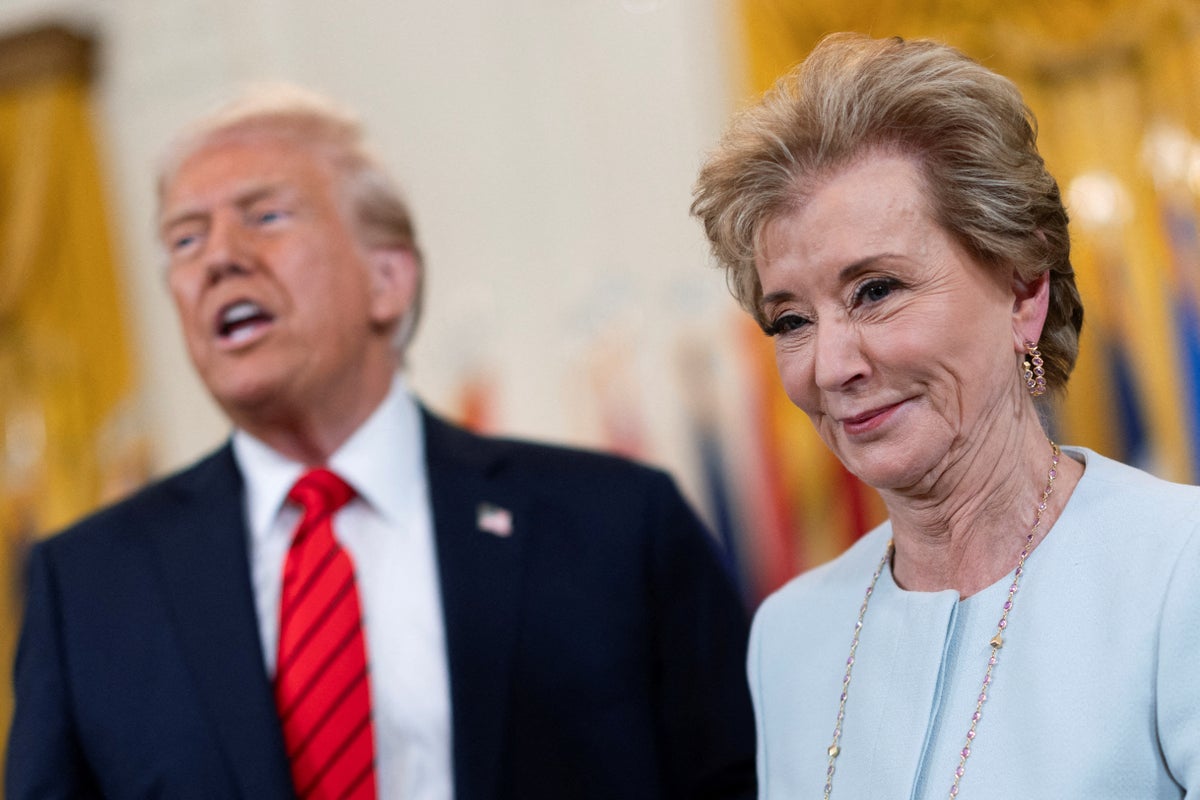After slashing refugee admissions and stranding thousands of people who were approved for entry into the United States, Donald Trump’s administration is now reportedly discussing an overhaul of the refugee system that would overwhelmingly favor white people.
A plan reportedly presented to the White House by officials from the State Department and Homeland Security would give preference to English speakers and Europeans, proposals that refugee groups and advocates say undermines the nation’s moral and legal fabric.
Officials have suggested that the United States should prioritize entry for Europeans who have been “targeted for peaceful expression of views online such as opposition to mass migration or support for ‘populist’ political parties,” according to The New York Times.
Those views appear to align with far-right platforms across Europe, including Alternative for Germany, an anti-Muslim and anti-immigrant party whose leaders have trafficked in antisemitism and Holocaust denial.
Some of these moves already appear to be underway: in May, a group of 59 white South Africans were admitted to the United States as “refugees,” and the United States “essentially extended citizenship” to them, Trump said at the time.

Since Trump returned to the White House, his administration has virtually shut down refugee admissions and blocked funding for resettlement groups, stranding thousands of people who were granted entry to the United States for humanitarian protections only to have those offers rescinded moments after Trump entered office.
That included Afghans who completed an extensive admissions process, as well as thousands of others whose applications are now in limbo.
“When the U.S. signals that some identities are more deserving of safety than others, it diminishes our standing, emboldens authoritarian critics, and destabilizes international burden-sharing,” Shawn VanDiver, director of AfghanEvac, told The Independent.
“It tells Afghan allies, persecuted minorities, and families still waiting in danger that their sacrifices and their lives matter less,” he said. “We see this firsthand: thousands of Afghans believed America when we said, ‘Stand with us and we’ll stand with you.’ To now prioritize Europeans over them is not just inequitable — it is an unconscionable betrayal.”
Trump directed an overhaul of the nation’s refugee admissions program earlier this year to study whether allowing refugees into the country was even in the interest of the United States.
The administration plans to dramatically slash the number of refugees allowed into the country next year, plummeting from 125,000 under Joe Biden’s administration last year to only 7,500.
The president is required to notify Congress about the cap on refugee limits, which it has not yet done.
“The U.S. refugee admissions program is one of the few remaining expressions of America’s humanitarian leadership on the world stage,” according to Global Refuge president Krish O’Mara Vignarajah. “To drastically lower the admissions cap and concentrate the majority of available slots on one group would mark a profound departure from decades of bipartisan refugee policy rooted in law, fairness, and global responsibility.”

Over the last several months, the administration has slashed financial aid and healthcare coverage for refugees, and the president’s One Big Beautiful Bill Act restricts refugees from eligibility for Medicaid, Medicare, children’s health insurance and emergency food assistance.
Potential changes to the refugee application process largely focus on assimilation, directing refugee applicants to take classes on “American history and values” and “respect for cultural norms,” according to The New York Times.
The administration should only allow entry to refugees who “fully and appropriately assimilate, and are aligned with the president’s objectives,” according to documents reviewed by the newspaper.
That sharp drop in admissions would mean that applications for hundreds of thousands of people who are already in the refugee admission pipeline — including people who have undergone extensive background checks — would be canceled.
Secretary of State Marco Rubio has overseen a radical reshaping of the agency, which funneled more than $250 million from refugee services to pay immigrants to leave the country.
That money was moved from the State Department’s Migration and Refugee Assistance, which is overseen by the Bureau of Population, Refugee and Migration. The bureau’s former mission was to aid refugees “fleeing persecution, crisis or violence and seek durable solutions for forcibly displaced people,” according to its website.
But under Rubio’s restructuring, the refugee bureau’s mission is now explicitly focused on efforts to “return illegal aliens to their country of origin or legal status.”
The Independent has requested comment from the State Department.
A dramatic overhaul of the nation’s refugee system “would deliberately leave vulnerable people in danger all around the world, rendering it unrecognizable,” according to Naomi Steinberg, vice president of U.S. policy and advocacy for HIAS.
“We’re hearing from Afghan women’s rights activists, Venezuelan political dissidents, Congolese families, persecuted Christians, and other religious minorities, all of whom now fear there is no room left for them in a system they trusted,” Vignarajah added. “What refugee families need most is a pathway to protection that is consistent, principled, and grounded in the promise that every life matters equally, not just the few who fit a favored profile.”

.jpeg)


































 English (US) ·
English (US) ·